
In May of 1960, the Food and Drug Administration approved the first commercially produced birth-control pill, called Envoid. Although produced by G.D. Searle Company in Chicago, Illinois, the development of contraceptive pills is largely owed to Margaret Sanger. Sanger opened the first United States birth-control clinic back in 1916, to encourage the development of safer and more effective alternatives to the birth-control methods available at the time. Funded by heiress Katherine McCormick, she worked for decades with the sole purpose of aiding women with this ongoing issue.
Bit of History
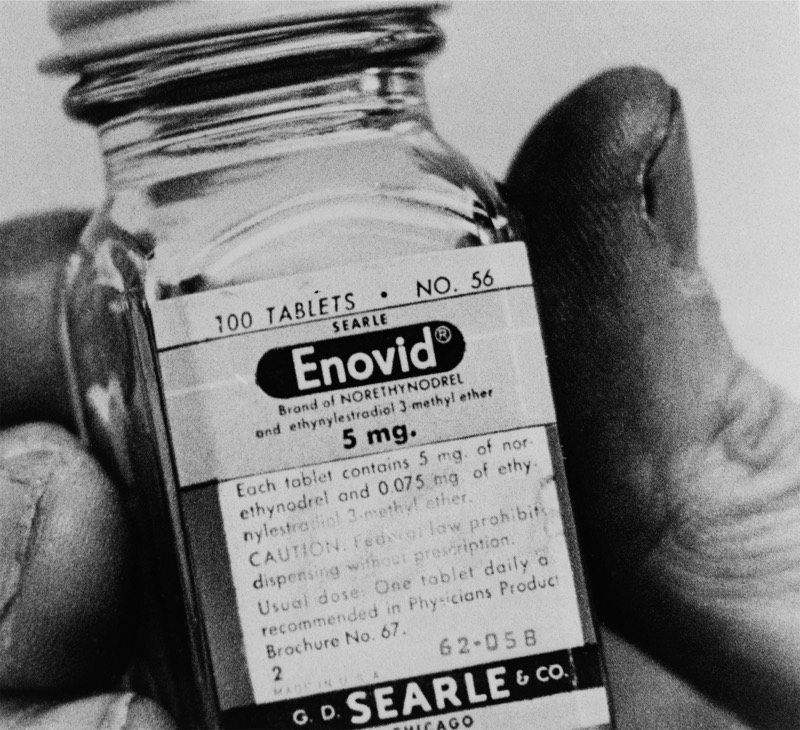
Since, birth-control pills have become the number one contraceptive method, aside from IUDs (intrauterine devices). They assist with everything from preventing unwanted or unintended pregnancies, reducing severe menstrual stamping, and even helping those who are prone to acne. While the short-term use of birth control can be highly beneficial, long-term use has been known to have some very detrimental effects on the body.
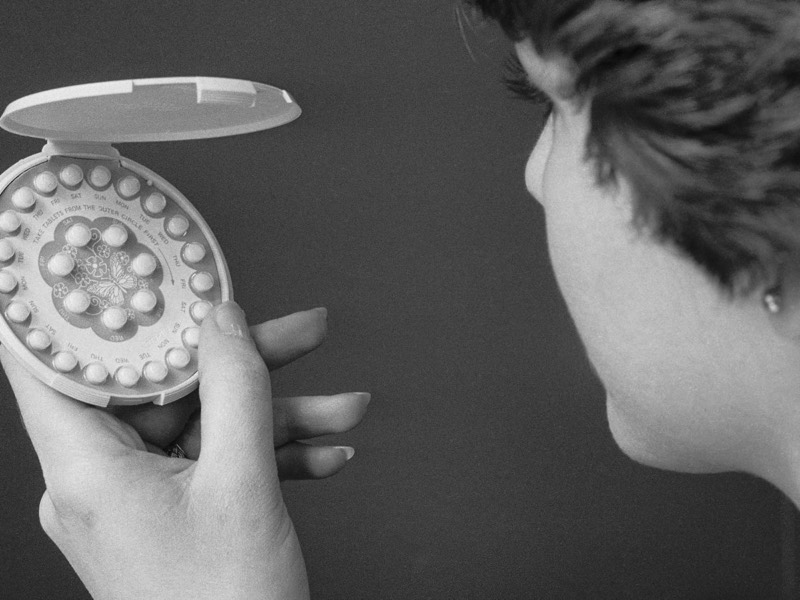 When birth control first came to market and for decades afterward, there was only the option to take oral contraceptives. These would include a monthly supply, including 21 days of a hormone pill, followed by 7 days of a placebo or “sugar pill”. However, in recent decades, there are now birth control pills that do not contain placebos – allowing women to skip over their periods altogether.
When birth control first came to market and for decades afterward, there was only the option to take oral contraceptives. These would include a monthly supply, including 21 days of a hormone pill, followed by 7 days of a placebo or “sugar pill”. However, in recent decades, there are now birth control pills that do not contain placebos – allowing women to skip over their periods altogether.
Short-Term Use of Birth Control
The short-term use of contraceptive pills and hormonal methods of birth control have been known to cause an array of side effects. This is because these methods of birth control contain artificial progesterone and estrogen. These artificial chemical hormones affect the natural level of hormones in a person’s body, often causing side effects shortly after taking them.
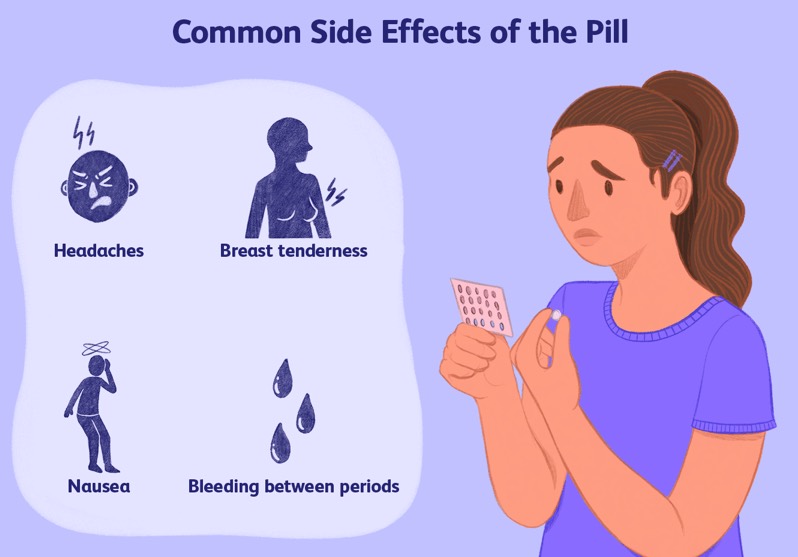 Not every person who takes birth control will experience side effects, however, new users are warned that the first three months will be a time of adjustment for their body. The majority of short-term side effects will dissipate after that timeframe, but some may linger or develop after taking birth control for some time.
Not every person who takes birth control will experience side effects, however, new users are warned that the first three months will be a time of adjustment for their body. The majority of short-term side effects will dissipate after that timeframe, but some may linger or develop after taking birth control for some time.
The possible short-term side effects of contraceptive pills may include:
- Bleeding or spotting between periods
- Nausea or cramping
- Headaches, Breast tenderness
- Mood swings, Weight gain, Acne
- Dizziness, Depression, Fatigue
Long-Term Use of Birth Control
While most people do not take birth control for prolonged periods of time, as they eventually want to have children, some do. These folks are generally taking birth control to assist with other issues aside from unintended pregnancy. 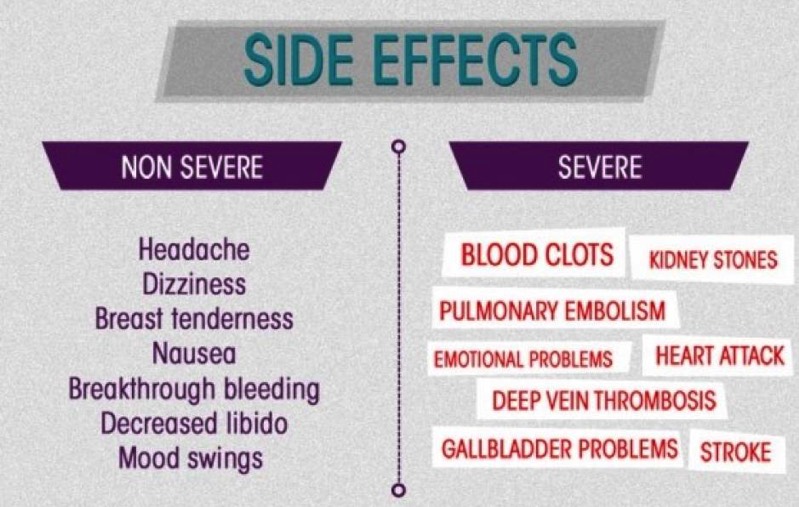 Some people take hormonal birth control for years to manage related medical conditions like endometriosis and menopause symptoms.
Some people take hormonal birth control for years to manage related medical conditions like endometriosis and menopause symptoms.
This will assumably only be done under the advice of a gynecologist or other medical professional, ensuring the safety of the specific user. A doctor will also be able to advise these users on the possible risks and side effects associated with prolonged use of contraceptives or birth control pills. This is especially true in cases where a patient’s medical history may indicate a higher susceptibility to dealing with a specific side effect.
Long-Term Use Side Effects
When thinking of taking or consulting your doctor on the prolonged use of birth control, it’s important to first be aware of several factors and the potential side effects. These can include:
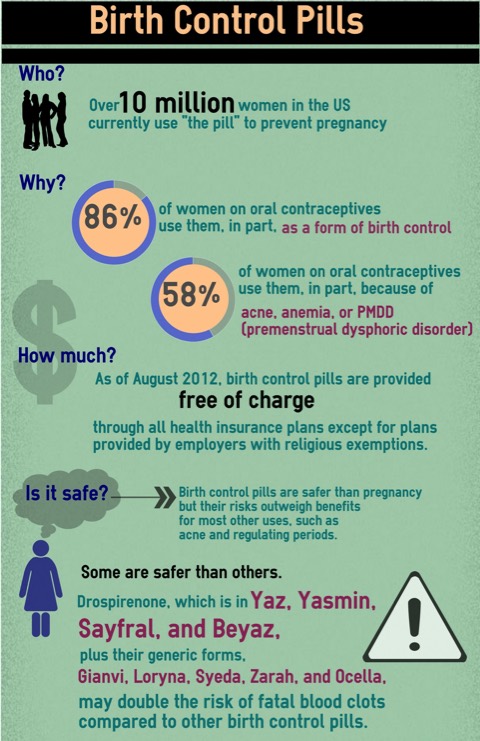 High Blood Pressure: increased blood pressure or hypertension, can occur in people who take birth control for prolonged periods of time. Although most cases of heightened blood pressure due to birth control are quite mild, there have been some rare cases where people’s blood pressure rose to a dangerously high level. This can lead to an array of serious medical issues.
High Blood Pressure: increased blood pressure or hypertension, can occur in people who take birth control for prolonged periods of time. Although most cases of heightened blood pressure due to birth control are quite mild, there have been some rare cases where people’s blood pressure rose to a dangerously high level. This can lead to an array of serious medical issues.- Cardiovascular Issues (Increased Risk of Blood Clots, Stroke, and Heart Attacks): this is another rare side effect of birth control, however, pills with a higher dose of estrogen are considered to raise this risk. People who take birth control for prolonged periods have a high risk of developing blood clots, which can lead to a heightened risk of a stroke, aneurism, or heart attack.
- Lower Libido: There has been researching that suggested that people who’ve taken birth control for longer amounts of time may experience a lowered libido. It’s believed that more research is necessary to gain a full understanding of the effects that hormonal contraceptives can have on a person’s libido – in both the short term and for years after taking the pill.
- Increased Risk of Gallbladder Disease: More research on the effects of the long-term use of birth control has shown that it may increase a person’s risk of developing gallbladder disease.
 It’s believed that this risk may be heightened by over 35%. This can also increase the risk of a person developing severe gallstones.
It’s believed that this risk may be heightened by over 35%. This can also increase the risk of a person developing severe gallstones. - Increased Risk of Certain Cancers: Some studies have concluded that people who take birth control for lengthy periods of time are almost twice as likely to develop breast cancer, as opposed to people who do not. The same can be said for cervical cancer, as there is also appears to be a heightened risk for people who take birth control. Other cancers that have known to have heightened cases in individuals who have taken the pill are; ovarian, endometrial, and colorectal cancer.
- Nutrient Depletion/Gut Health: Birth control pills are known to deplete magnesium, B vitamins, selenium, Vitamin C, and E. All of this contributes to the disruption of the gut microbiome and can lead to digestive and stomach health problems.
Who Shouldn’t Take Birth Control?
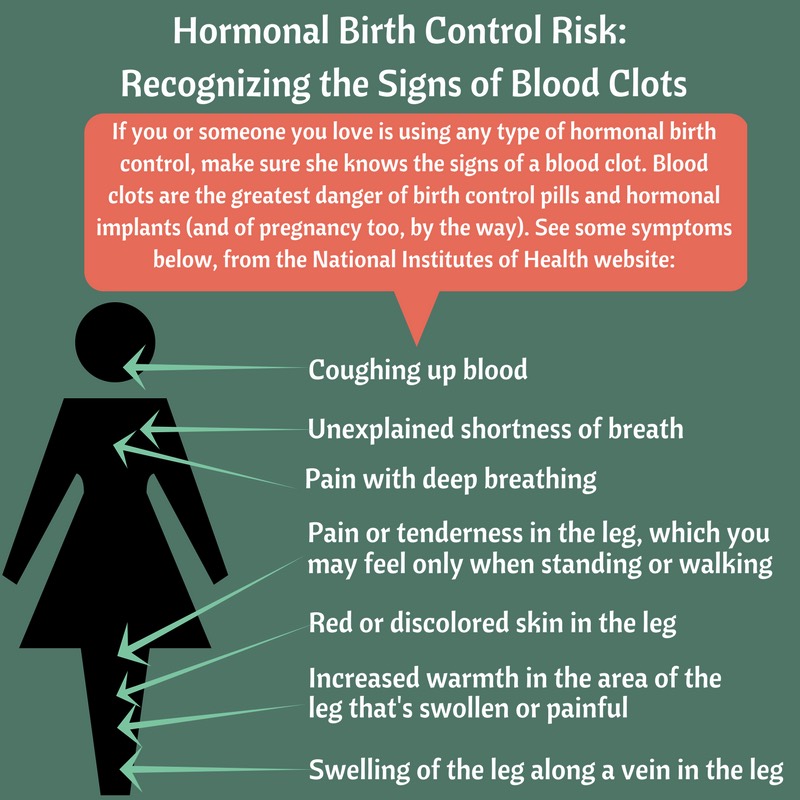 New birth control users, or people who’d like to switch their specific type of birth control, should always first consult their doctor. Certain types of birth control, or taking the pill in general, may not be a safe option for people who:
New birth control users, or people who’d like to switch their specific type of birth control, should always first consult their doctor. Certain types of birth control, or taking the pill in general, may not be a safe option for people who:
- Have a known history of heart disease
- Suffer from migraines with aura
- Have known or suspected breast cancer, or cancer of the uterus, cervix, etc.
- Have untreated hypertension or high blood pressure
- Known or suspected pregnancy
- Smoke and are over the age of 35
- Coronary artery disease
- Blood clots or a history of blood clots
When Should You Contact Your Doctor?
You should consider consulting your doctor or a healthcare provider if any of the following symptoms occur while taking birth control (short- or long-term use), as they can indicate a serious health issue or concern:
- Swelling or aching in your legs or thighs
- Severe headaches
- Eye issues (blurred or loss of vision)
- Chest pain, shortness of breath or both
- Severe abdominal pain (or uterine pain)
For additional information, you can take a look at the following video that explains more about the various side effects, warning signs, and issues with prolonged use of birth control.




